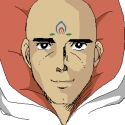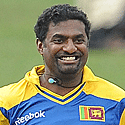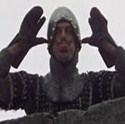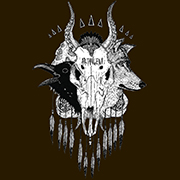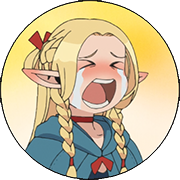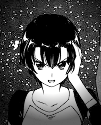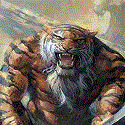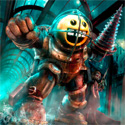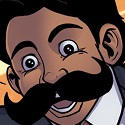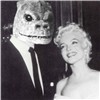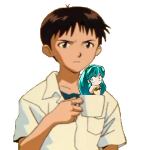|
TOOT BOOT posted:I've never understood why some people are bothered by things like aliens and FTL in science fiction. Aliens don't bother me so much as really loving boring aliens do. And that seems to be all I ever run in to.
|
|
|
|

|
| # ? May 12, 2024 21:25 |
|
General Battuta posted:You can go on a no-aliens/no-FTL kick for all sorts of good reasons - a lot of good stories are told within constraints, for instance. Or you might be looking for a specific kind of mood or conflict that's often associated with these traits. I'm more referring to the latter, I understand being in the mood for a particular type of story.
|
|
|
|
Fallom posted:The thing that bothers me most in science fiction is characters experiencing metaphysical revelations about the universe relayed as lengthy and rambling stream-of-consciousness passages. I'm on book 2 of the Galactic Center Saga and I'm kind of regretting it. I'm reasonably confident that nobody has ever done a good job writing a character experiencing a metaphysical revelation about the universe, but yea the multi-page stream-of-consciousness version is definitely the worst.
|
|
|
|
I liked it in the Gundam novels
|
|
|
TOOT BOOT posted:I've never understood why some people are bothered by things like I don't understand why anyone would want to speculate on how space exploration/civilization might play out and then include magic that greatly simplifies things. Thanks to folks for their recommendations.
|
|
|
|
|
Ratios and Tendency posted:I don't understand why anyone would want to speculate on how space exploration/civilization might play out and then include magic that greatly simplifies things. The problem tends to be that going overboard with the scientific accuracy (highly "hard" SF is probably the label you're looking for) can put some pretty big limitations on what kind of stories you can tell. For some more recommendations though, Arthur C. Clarke comes to mind as the classic giant in the field here. Or there's last year's 2312, for another more recent entry. Also... you don't really have to view FTL as magic. If it helps you enjoy more SF, there's avenues of theoretical possibility there which haven't been disproven (yet): http://www.nasa.gov/centers/glenn/technology/warp/ideachev.html
|
|
|
|
Ratios and Tendency posted:I don't understand why anyone would want to speculate on how space exploration/civilization might play out and then include magic that greatly simplifies things. Most authors write to tell a good story, and strict realism isn't always a part of their vision.
|
|
|
|
Irony.or.Death posted:I'm reasonably confident that nobody has ever done a good job writing a character experiencing a metaphysical revelation about the universe, but yea the multi-page stream-of-consciousness version is definitely the worst.
|
|
|
|
What do people think of the Newbury and Hobbes series of Steampunk novels? I just started the first one and haven't gotten far into it. I was either going to start with that or Boneshaker and I flipped a coin and it came up for those. I just haven't really had the time to get deep into the book. It seems to be very...YA for lack of a better term and the inclusion of [spolier]Zombies[/spoiler] is kind of eye rolling but I don't mind that. I was just wondering what the Hivemind thought. I also really enjoyed Redshirts, I liked the ending with the 3 codex's, though I did wish there was more of an exploration of the setting.
|
|
|
|
andrew smash posted:As mentioned, house of Suns, the quantum thief. I didn't mention TQT because it's pretty out there, even if it technically has no FTL, but if we're going to mention that I'd add The Golden Age. Don't read anything else by the author and especially don't read anything he has written outside of his books if you want to enjoy it; these are awesome idea-dense books but he's pretty crazy. One of the central conflicts is about whether humanity should colonise outside the solar system or not. They are constrained by light. And as someone else mentioned, Blindsight, but I didn't recommend that because it comes up so much and I just assumed people would know of it by now! Great book, though. Really looking forward to the sequel, once Watts' editor is done with it. quote:Near the end of Book of the New Sun, Severian experiences an epiphany that pretty much blew my mind when I first read it and remained wonderful upon rereading. Naturally it means nothing without the context but for anyone who's read the book recently I'm talking about the sequence that ends with him throwing his boots into the ocean, that he "might not walk shod on holy ground". In general, Book of the New Sun is structured such that the story's climax is not something about the plot (which is "spoiled" on the first page) but a sequence of revelations about the nature of the universe That is an awesome and beautifully written passage in a series with many awesome and beautifully written passages. People may criticise Wolfe for being needlessly opaque and obtuse but the man's prose is fantastic when he's on his game.
|
|
|
|
So, the wife recently played through The Witcher 2, and I decided to read up on the source material because it seemed to know what the hell it was doing. Apparently the novels were good enough, and rooted in Polish folklore enough, for the Polish Prime Minister to give them to the U.S. President as a gift. But no matter how many reviews I look up, no one seems to say definitively that they aren't just Polish R.A. Salvatore. Anyone familiar? Also, out of curiosity, of all the Heinlein novels I see mentioned(Starship Troopers and Stranger in a Strange Land), I never see Citizen of the Galaxy. I picked up the only copy I've ever actually seen(1957 print) in a used book store for a few bucks some years ago, and it's one of my all time favorites bar none. You have to admire a writer that can make visually represented trigonometry engaging(or at least tolerable, depending on your taste), and Fraki seems to pop into the(my) lexicon just like Grok or Schadenfreude. Still, I've never seen it spoken of. Has anyone else read it?
|
|
|
|
Yeah, I agree, Citizen of the Galaxy is one of Heinlein's best works. It's just not as often read because it isn't as controversial.
|
|
|
|
|
Irony.or.Death posted:I'm reasonably confident that nobody has ever done a good job writing a character experiencing a metaphysical revelation about the universe
|
|
|
|
I like non-FTL poo poo, but it's not because I dislike FTL-magic. It's because it can involve interesting stuff like generation ships and, to give a specific example, the awesome near-lightspeed chase in Redemption Ark.
|
|
|
|
quote:a character experiencing a metaphysical revelation about the universe quote:Hesse Most everything by Hesse features a moment like this and it generally is always done quite well: Steppenwolf has Haller temper his restlessness and suicidal thoughts by reconciling all the different aspects of himself (the Steppenwolf, Maria, Hermine, Pablo, and the Bourgeois Harry); Narziss and Goldmund has each character achieve a similar insight about the nature of the universe by very different means; the Glassbead Game is about a game that tries to capture "the universe" into a game, and the climax is Knecht's decision to give up the game and the society that created it. In "genre" it is pretty much never done well (not counting Gene Wolfe here) because the focus of the writing is not on internal revelations. Most genre scifi/fantasy is focused on more external factors, and even when internal conflicts are heavily featured, they almost always are manifested by and overshadowed by physical struggle such as spaceships shooting at each other, people fighting, or political entities at war. To try to shoehorn a metaphysical revelation within spaceships shooting each other is not going to work well unless the focus of the writing is really inside the head of the protagonist, and the spaceships are just on the periphery. Wolfe's Book of the New Sun is a good example of how it can be done; even though Severian has a giant sword and gets in physical conflicts, these fights are given little focus e.g.: "and I sliced off the horse's head," followed by a full paragraph of internal thoughts and feelings about himself, his past, and the characters around him. Even in the big duel at the end of the first book, where he fights using the plant, the entire duel is described in only a page or two, because the real weight of the scene is the reveal that Severian was betrayed and how that affects him. The end of the first chapter even tells you that Severian will become Autarch, so that takes even more focus and tension out of external events. In Rothfuss' Name of the Wind series, you have a kind of similar setup to Book of the New Sun, but this also doesn't lend itself to using internal revelations as climactic moments. There is a framing story told from an older Kvothe, so you know he's going to live to at least middle age, and it's all first-person so you are mostly in his head, but so much of the conflict is tied up in "I have x amount of money and need y amount of money or I'll be kicked out of school". Big climactic moments often involve, "I got a windfall of x amount of money, so now I can pay my tuition, BUT..." and then tension is created because he spends the money on something stupid or otherwise makes a poor decision that leads to further conflict. There are internal moments of conflict, but they are fairly hamfisted: "Denna!" I gave up on this series, but I don't think Rothfuss ever bothered trying to make deep revelatory scenes that served as ends of rising action, which was a good decision given his existing sources of tension. The closest thing he does to revelatory climaxes are the scenes of Kvothe playing music; these scenes have some interesting internal dialogues, but most of the tension is tied up in external rivalries, proving himself to others, and impressing Denna with the music rather than discovering something greater than himself through the music. The first book in Name of the Wind also had the fairly random dragon scene, which struck me as Rothfuss thinking his book was lacking more typical fantasy scenes of fighting scary stuff or being challenged with a more life or death situation. The scene felt so random because it didn't mesh with the established forms of tension used in the previous hundreds of pages of the story. Having a story about people fighting with swords or lasers, and all of the tension being from that, and then suddenly trying to make a climactic moment of the guy with the sword or laser realizing that humanity is more inter-connected than the character previously thought, and stopping all of the action for him to muse on this, is going to be as jarring as the random dragon scene was in Name of the Wind. For the record, I like books that just have cool spaceship fights and sword battles, but I do prefer them to be more in between both extremes: I think Scalzi's Old Man's War is a good example, it has "cool poo poo happening" and most of the focus is on that, but there is a strong and steady undertone of how war changes a person for the worse. angel opportunity fucked around with this message at 16:31 on Sep 25, 2013 |
|
|
|
Hieronymous Alloy posted:Yeah, I agree, Citizen of the Galaxy is one of Heinlein's best works. It's just not as often read because it isn't as controversial. I suppose "The willful ignorance of western academia regarding modern slavery and the harsh reality of the world in general" doesn't have quite the same ring to it as "Life is an orgy" for generating controversy.
|
|
|
Danny Dravot posted:I suppose "The willful ignorance of western academia regarding modern slavery and the harsh reality of the world in general" doesn't have quite the same ring to it as "Life is an orgy" for generating controversy. Hah, I never thought about that, but yeah, you could read Citizen as a critique of modern, western economic imperialism. I think that reading would fly completely over the heads of almost anyone reading it, though. Still it's easily one of Heinlein's top five in terms of pure entertainment value.
|
|
|
|
|
Man, I know I'm like 12 pages late to this, but gently caress Ready Player One. I originally was planning to pass on it because it looked awful, then decided to pick it up because of two book store reviews (you know, the ones on index cards) and the 4.5 star rating on Amazon. It's future dystopia where people solve mysteries in a video game -- sounds dumb but maybe it'll be fun romp in a Legends of the Hidden Temple way. NOPE. What I got was a 400 page meditation on how loving great the internet is and how much obscure knowledge the author has about 80s video games and otaku culture. Hey! Zork! You know Zork, right? And...the kill screen from Pac Man. And Monty Python. Check out these references to things you too may have enjoyed in the 80s! Also, for a book that's basically all about homages to 80s culture, we get these amazing descriptions: this loving book posted:[Halliday is] surrounded by teenagers whose clothing, hairstyles, and dance moves all indicate that the time period is the late 1980s […] he spins in rapid circles, swinging his arms and head in time with the song, flawlessly cycling through several signature ’80s dance moves. The whole thing is a monument to the worst excesses of nerd culture. "Who cares about voting in the real world, all politicians are the same. Let's vote for Cory Doctorow and Will Wheaton, those guys actually affect The Internet, where everything important happens Also people are apparently praising this book for being diverse Anyway, I could probably go on endlessly about how awful this book is, but I guess I'll save that for when the movie trailers start coming out.
|
|
|
|
Danny Dravot posted:So, the wife recently played through The Witcher 2, and I decided to read up on the source material because it seemed to know what the hell it was doing. Apparently the novels were good enough, and rooted in Polish folklore enough, for the Polish Prime Minister to give them to the U.S. President as a gift. But no matter how many reviews I look up, no one seems to say definitively that they aren't just Polish R.A. Salvatore. Anyone familiar? I've read part of Blood of Elves. I find they tend to meander quite a bit, as in a typical taciturn dwarf, a curious gnome and a flighty bard sit around discussing the politics of the world for awhile in a way that's peculiarly unnatural. So I put it down.
|
|
|
|
systran posted:Most everything by Hesse features a moment like this and it generally is always done quite well: Steppenwolf has Haller temper his restlessness and suicidal thoughts by reconciling all the different aspects of himself (the Steppenwolf, Maria, Hermine, Pablo, and the Bourgeois Harry); Narziss and Goldmund has each character achieve a similar insight about the nature of the universe by very different means; the Glassbead Game is about a game that tries to capture "the universe" into a game, and the climax is Knecht's decision to give up the game and the society that created it. I think part of the reason for this is the nature of sf/f as something that's obviously not about the real world. Jane Eyre may not have been a real person but you can imagine a 19th century England differing from ours only in that it's true; but The Left Hand of Darkness (or American Gods, say) is obviously made up. This is part of a John Clute interview (probably not online, copied from an old Interzone) discussing this: quote:[A]lthough they are not mimetic literatures, they do address how reality is addressed by us... Sf, after all, was the 20th-century literature that was about the 20th century. ...The Dark-Twin 20th century, which haunts our hindsight and mocks our hideous innovations, is ... a mask we recognise every time we look in the mirror. And the literatures of the fantastic know it. Modern sf and serious fantasy treat the planet as a countenance to be tweaked. And here's a recent blog post from Walter Jon Wiliams on something similar. He's discussing Never Let Me Go, and the relevant bit goes: quote:And that is the big difference between this book and genre. If this were an SF novel, and the characters knew that they were in a system that was set up to kill them, the characters would spend the novel trying not to be killed. They would try to escape, they would go into hiding, they would attempt revolution, they would try to hack the system, they would exchange information, they would do research about what’s going on, they’d steal a boat and sail across the Channel, they would riot, they would blow up Parliament. They would obsess about not being killed, all their conversations would be about how not to be killed, and they would make one attempt after another not to be killed. Not being killed would become their, I dunno, raison d’ętre in the most literal way. Sf/f is set in obviously made worlds - alternatives to our own - and sf protagonists know in their bones that they have alternatives. There's no alternative to the real world, but novels set in it pretend there isn't an alternative to the "real" world in which they're set. They swim with the world, they take it as a given, and so do the authors. The novel is about characters within a world. An sf/f novel is about a world embodied by its characters. The world is the point of the story, in a way. Sf/f (in a way) doesn't need psychological realism. It makes its point otherwise. Of course there are exceptions and I'm terribly oversimplifying. Historical novels are a big obvious counterexample on one side of the divide, and on the other there are plenty of character-focused sf/f writers; the end of Neuromancer was the one I was thinking of. In a way sf/f are closer to premodern genres than realist and modern ones (though it's also bound to describe the world it inhabits, which generally involves realist techniques). I was even originally going to say that sf/f are "almost allegorical", although the way sf/f worlds embody their ideas as things which are also real in that world is a key difference. E.g. the time dilation in The Forever War is 100% real for the characters in the novel, it's not symbolic, but it also symbolises how people who've had a certain experience and those who haven't can't relate to each other. Tl;dr and less pretentiously, you're right, but it's not because sf/f writers are idiots who just like smashing spaceships into each other and shouting "Boom!" Not that I thought you were saying that. You might like David Zindell too (read in publication order, starting with Neverness.) Neverness is set in a baroque and fantasy-tinged far-future, mostly consumed with philosophical problems. It's about a man in a quasi-monastic order a bit like Castalia who meets a "goddess" and comes to metaphysical revelations about a lot of stuff. I can't really summarise it without making it seem stupid. The sequel trilogy goes a bit further and has lots of discussion of relativism and accepting the world. They're kind of Timothy Leary-ish, but I thought they were great when I was a teenager. Oh yes and here's Adam Roberts' review of The Name of the Wind. I'll shut up now, honest.
|
|
|
|
I just today picked up The Rook by Daniel O'Malley on the whim of picking it up in the scifi and fantasy section of Waterstones, liking the cover and reading the first paragraph. I never buy books without already knowing at least something about them or the author (never heard of him before), was this a terrible mistake or a good choice? I sadly don't have time to actually start reading it today.
|
|
|
|
Very good choice.
|
|
|
|
I just finished Dark Eden after having been disappointed by the Iron Druid Chronicles. Dark Eden was quite good. I really thought the ending was quite fitting. Definitely one of the better Science Fiction books written recently.
|
|
|
|
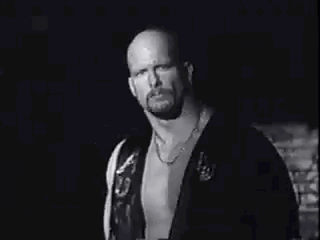
|
|
|
|
RoboCicero posted:The whole thing is a monument to the worst excesses of nerd culture. "Who cares about voting in the real world, all politicians are the same. Let's vote for Cory Doctorow and Will Wheaton, those guys actually affect The Internet, where everything important happens So, essentially, it's Slashdot: The Novel
|
|
|
|
RoboCicero posted:Man, I know I'm like 12 pages late to this, but gently caress Ready Player One. This book is the #1 rated sci-fi book on Goodreads. I'm probably not going to be able to make myself use that site. Peel posted:When I finished Hyperion I enjoyed it but I could somehow tell that it was the high point of that writer's work and if continued would collapse. I read this whole drat series, and wrote up a fairly lengthy (and expletive filled) review of the whole thing. My overall take was that Hyperion is a phenomenal book even without an ending, Fall of Hyperion could have been drastically cut down into an epilogue for the first book if it had to exist at all, and the other two books should simply never be spoken of. I actually do think Hyperion stands just fine on its own though. You just have to accept that wrapping up all the plot threads and explaining the concepts isn't the point, it's more about how all the character arcs tie together at the end. The Shrike can be whatever you want him to be. Make up your own ending. Your version is going to be more satisfying than the dogshit Simmons spews at you if you keep reading. emTme3 fucked around with this message at 06:49 on Sep 27, 2013 |
|
|
|
I was in the book shop the other day and came across "Prince of Thorns" by Mark Lawrence, which seemed pretty interesting. I do enjoy a good fantasy tale, and also anti-heroes, so I was wondering if any of you have read it and/or would recommend it? Reviews seem quite favourable, and from what I can tell its part of a trilogy that's already done?
|
|
|
|
Syle187 posted:I just finished Dark Eden after having been disappointed by the Iron Druid Chronicles. Dark Eden was quite good. I really thought the ending was quite fitting. Definitely one of the better Science Fiction books written recently. I didn't mind it but it felt like something that has been done before. Also, the characters were far too self-aware. The dumb follower character thinks to himself which can be paraphrased fairly easily as "I am a dumb follower".
|
|
|
|
Kraxxukalf posted:I was in the book shop the other day and came across "Prince of Thorns" by Mark Lawrence, which seemed pretty interesting. I do enjoy a good fantasy tale, and also anti-heroes, so I was wondering if any of you have read it and/or would recommend it? Reviews seem quite favourable, and from what I can tell its part of a trilogy that's already done? Calling surreptitious muffin to the thread!
|
|
|
|
I could use some assistance here. I picked up an old paperback copy of Moorcock's Elric of Melnibone, which I think is itself a reprint of the originally titled The Dreaming City. I'd really like to keep reading the Elric books in order, but with all the reprints and renaming, which book should I get next?
|
|
|
|
systran posted:Calling surreptitious muffin to the thread! Quicker: http://forums.somethingawful.com/showthread.php?threadid=3345499&pagenumber=222&perpage=40#post416315941
|
|
|
|
Argali posted:I could use some assistance here. I picked up an old paperback copy of Moorcock's Elric of Melnibone, which I think is itself a reprint of the originally titled The Dreaming City. I'd really like to keep reading the Elric books in order, but with all the reprints and renaming, which book should I get next? Classic Elric reading order: Elric of Melnibone Sailor on the Seas of Fate Weird of the White Wolf The Vanishing Tower Bane of the Black Sword Stormbringer
|
|
|
|
Kraxxukalf posted:I was in the book shop the other day and came across "Prince of Thorns" by Mark Lawrence, which seemed pretty interesting. I do enjoy a good fantasy tale, and also anti-heroes, so I was wondering if any of you have read it and/or would recommend it? Reviews seem quite favourable, and from what I can tell its part of a trilogy that's already done? I tried to read it, but I stopped when I got to the sentence "I don't like being angry, it makes me angry." That's just horrible writing. I made it through Fool Moon and I couldn't make it through the first few chapters of this book. Not saying it sucks, cause I haven't read it, but it's not one I recommend to anyone.
|
|
|
|
Hahah, I guess that answers my question, not gonna bother with it then. Thanks for the input! Any alternate recommendations for such books? If not, I'll just start up the first Malazan book I've had lying around for ages.
|
|
|
|
Jedit posted:Classic Elric reading order: Cool, thanks!
|
|
|
|
Kraxxukalf posted:Hahah, I guess that answers my question, not gonna bother with it then. Thanks for the input! You should go read Joe Abercrombie's First Law trilogy if you haven't already, starting with The Blade Itself.
|
|
|
|
Awesome, sounds like a worthy read. Does the quality stay consistent throughout the trilogy? In any case, think I'll add them to my list then.
|
|
|
|
I will probably be the one voice to come out against Abercrombie here, but I really hated the trilogy, and I always feel an obligation to say something against it when the rare person who hasn't read it gets a recommendation for it. Keep in mind that something like 95% of goons loving love it, so you likely will too. It is entertaining and keeps you wanting to read for the first book and a lot of the second; it reads a lot like an action movie mixed with an RPG, complete with random mini-boss fights. It sets up some rather compelling world-building and unique ideas that you feel intrigued by and can't wait to learn more about, and then it fails to follow through on most of these ideas and leaves them barely fleshed out. Since the trilogy was so highly recommended, I kept trusting that the author couldn't possibly be dropping the ball as badly as it felt like, and I kept reading. Maybe one-third or halfway through the third book I realized that he indeed did not really know where he was going and was going leave a lot of stuff unresolved and half-baked. There were some unnatural character arcs, characters that never really developed, characters that were loving PAPER-THIN cartoons, and some very questionable plot structures. I could feel things popping at the seams during book two, and in book three I didn't see a way for Abercrombie to salvage anything. The further I got into book three, the more disappointed I felt, and the climax of book three and the whole trilogy was truly terrible. I won't go into too much more detail because people will say, "It wasn't for me" or that "The other books not in the trilogy clarify x or y thing!" I still will maintain the trilogy is objectively flawed and that there is much better stuff out there. edit: To be more productive, the Lighthouse Duet by Carol Berg is a fantasy series with an interesting protagonist and characters that introduces a lot of nice concepts and ideas, then follows through on all of them and wraps up with a satisfying ending. angel opportunity fucked around with this message at 15:53 on Sep 27, 2013 |
|
|
|
Stupid_Sexy_Flander posted:I tried to read it, but I stopped when I got to the sentence "I don't like being angry, it makes me angry." Disagree. The narrator is 14 when he says that. You are calling what an immature psychopath says "horrible writing"; you are kind of missing the point. I understand if you don't like Jorg, he gives you three books worth of reasons not to, but that's not the quality of the writing. You're missing out on some good dark fantasy. Should have stuck with it in my opinion. The trilogy shows how he grows (and maybe more importantly, how he doesn't). The world-building is interesting (think Dark Tower), the books are incredibly violent (which I like in my fantasy), and they are a brisk read.
|
|
|
|

|
| # ? May 12, 2024 21:25 |
|
Stupid_Sexy_Flander posted:I tried to read it, but I stopped when I got to the sentence "I don't like being angry, it makes me angry." Yeah that sentence really stuck out in my mind too. There are some good qualities buried in the book but it really felt like it was edgy for the sake of edginess. I actually like reading about protagonists that are terrible people, but I couldn't find Jorg compelling at all since he was so ridiculous. I mean, the book opens with him and his army raiding a village. He (a 13 year old boy) rapes a few women, and then slaughters the village by burning them to death. Lawrence does have some talent as a writer, but sadly he squanders it by going in a stupidly grimdark (ugh I hate that word but it really applies here) direction.
|
|
|



